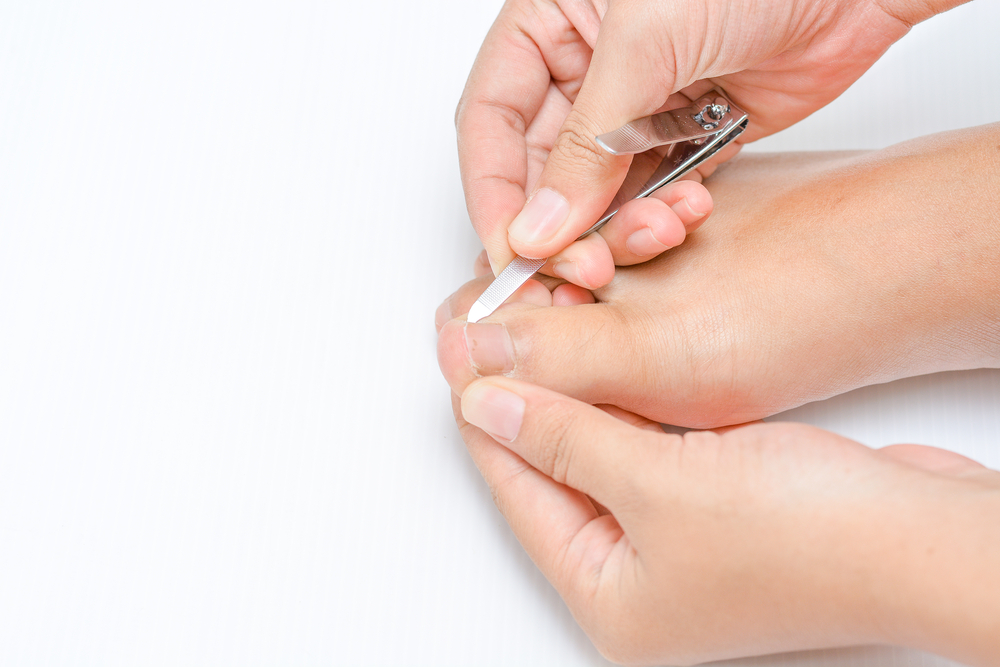
 There is no mistaking when an ingrown toenail develops. It is often noticed when the nail grows into the skin instead of over it. If prompt medical attention is not received, it may ooze a discharge, and become infected. An ingrown toenail can happen for various reasons. Trimming the toenails incorrectly is a common reason, in addition to wearing shoes that are too tight. Older people may frequently get ingrown toenails, possibly as a result of having poor eyesight, or not being able to reach their toes. Some people find mild relief when they soak their feet in warm water, followed by gently pulling the skin away from the nail. This is a temporary solution, and the skin will often return to the way it was before the feet were soaked. A bandage may have to be worn over the tender skin for protection until professional medical attention is sought. If you have developed this condition, it is strongly suggested that you see a podiatrist sooner rather than later who can effectively treat an ingrown toenail.
There is no mistaking when an ingrown toenail develops. It is often noticed when the nail grows into the skin instead of over it. If prompt medical attention is not received, it may ooze a discharge, and become infected. An ingrown toenail can happen for various reasons. Trimming the toenails incorrectly is a common reason, in addition to wearing shoes that are too tight. Older people may frequently get ingrown toenails, possibly as a result of having poor eyesight, or not being able to reach their toes. Some people find mild relief when they soak their feet in warm water, followed by gently pulling the skin away from the nail. This is a temporary solution, and the skin will often return to the way it was before the feet were soaked. A bandage may have to be worn over the tender skin for protection until professional medical attention is sought. If you have developed this condition, it is strongly suggested that you see a podiatrist sooner rather than later who can effectively treat an ingrown toenail.
Ingrown toenails can become painful if they are not treated properly. For more information about ingrown toenails, contact Dr. Robert Hope of Riverside Podiatry. Our doctor can provide the care you need to keep you pain-free and on your feet.
Ingrown Toenails
Ingrown toenails occur when a toenail grows sideways into the bed of the nail, causing pain, swelling, and possibly infection.
Causes
Prevention
Because ingrown toenails are not something found outside of shoe-wearing cultures, going barefoot as often as possible will decrease the likeliness of developing ingrown toenails. Wearing properly fitted shoes and using proper cutting techniques will also help decrease your risk of developing ingrown toenails.
Treatment
Ingrown toenails are a very treatable foot condition. In minor cases, soaking the affected area in salt or antibacterial soaps will not only help with the ingrown nail itself, but also help prevent any infections from occurring. In more severe cases, surgery is an option. In either case, speaking to your podiatrist about this condition will help you get a better understanding of specific treatment options that are right for you.
If you have any questions please feel free to contact our offices located in Tuscaloosa, and Fayette, AL and Fayette, AL. We offer the newest diagnostic and treatment technologies for all your podiatric needs.